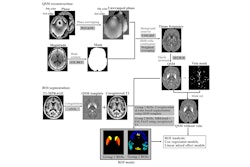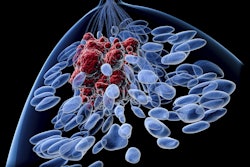Quantitative brain MRI data appear to help clinicians forecast the effects of out-of-hospital cardiac arrest among those who survive it, a team from the University of Washington in Seattle has reported.
The study results are promising, but more research is needed, wrote a group led by Thuhien Nguyen, MD. The findings were published June 19 in Neurocritical Care.
"External validation in larger prospective multicenter cohorts, assessment of long-term outcomes, and examination of the score in deceased patients are needed to establish the prognostic value and address concerns about generalizability," Nguyen and colleagues noted.
Previous research has explored the use of brain MRI as a way to predict a patient's neurological condition after out-of-hospital cardiac arrest, but these studies have focused on forecasting poor outcomes or death, the group explained. Nguyen's team conducted research that assessed whether a composite brain MRI score (called an "NP score," with a range between 0 and 214) could predict neurologic outcomes in 42 patients who experienced out-of-hospital cardiac arrest between 2017 and 2023 and who underwent brain MRI within two to seven days post arrest and survived to hospital discharge.
The investigators calculated the NP scores from diffusion-weighted imaging (DWI) and fluid attenuated inversion recovery (FLAIR) signals in particular neuroanatomical areas. The MRI exams were taken at a median of four days postarrest. Using Cerebral Performance Categories (CPCs), they categorized neurologic outcomes as "independent" (CPC 1 to 2, or normal function to moderate disability), "dependent" (CPC 3, or severe disability), and "coma/vegetative state" (CPC 4).
The team found the following:
- NP scores correlated strongly with CPC scores (p < 0.001) and were significantly different between CPC categories (p < 0.001).
- NP threshold scores of 15 and 54 were transition points between independent/dependent and dependent/vegetative states, respectively.
"Quantitative brain MRI-based scoring may predict neurologic outcomes at discharge among [out-of-hospital cardiac survivors]," the researchers concluded.
The complete study can be found here.





















